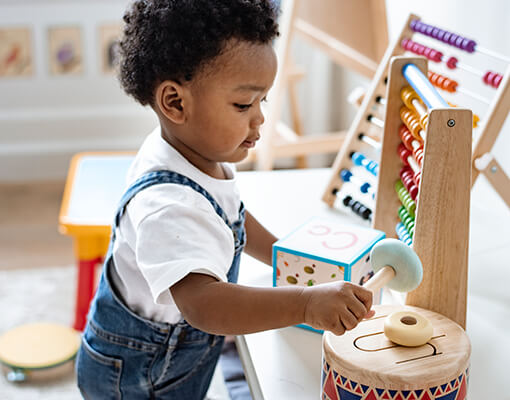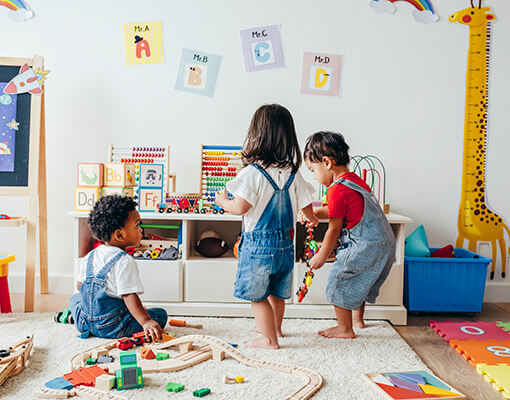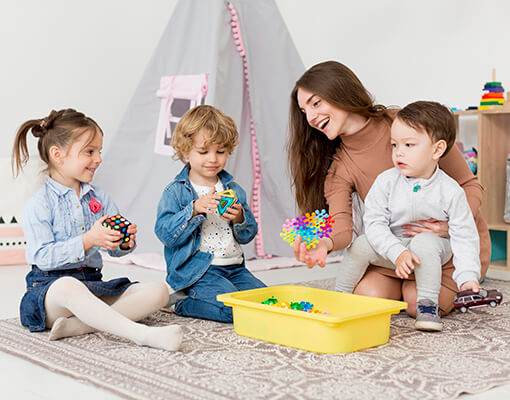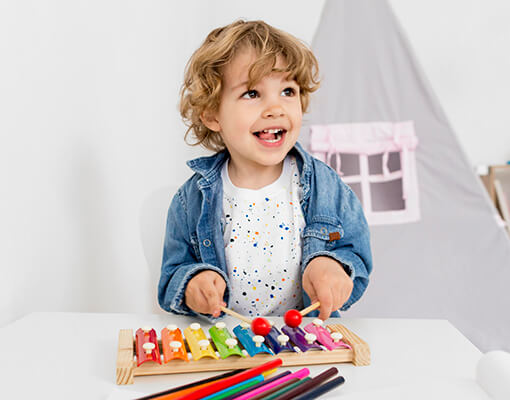Interventions
Intent
At Kafleas Academy Ltd. we have designed our interventions with the intent that all children will have maximum opportunities to achieve their full potential, across the whole Primary School Curriculum. The children will develop building blocks to become successful adults in terms of being able to gain employment, live healthy lifestyles, be moral citizens and to take opportunities to extend their horizons.
These themes are central to our vision: Inclusion, Pupil Voice and Respect.
Our ethos at Kafleas Academy is one of inclusion; all children have the right to be included in all aspects of their learning, and our interventions aim to give the individual child the necessary tools to achieve their goal.
Reading
At Kafleas Academy Ltd. we aim to develop a ‘Love to Read’ ethos for every individual child. We recognise the importance of reading both at home and at school, therefore at Kafleas Academy Ltd. each child has their individualised home reading book (bespoke to the reading age and stage of the child) and a library book chosen from the Classroom Library’s (to read for pleasure).
In school, every child is heard read individually by their class teacher, those children who need more support on their reading journey read additional to this with our reading teacher’s across the week. The children are encouraged to read a wide range of genre, giving their own interpretation of the text read and drawing inference from their books. As well as this, we encourage the children are guided to make comparisons between a variety of authors, as well as developing an opinion as to which books and authors they prefer. It is great to see many of the books in the classroom libraries from Authors, Illustrators and poets who have themselves visited our school to work with the children; Liz Million, Adam Bushnell and Paul Cookson to name a few.
George: “I love reading with Mrs Gallacher after dinner because she asks me questions about the book and I like to talk about them.”
Fast Track Phonics Tutoring (Read Write Inc.)
At Kafleas Academy Ltd. we follow the Read Write Inc. programme to teach our children phonics, to become fluent and passionate readers, as well as to inspire our writing. Read Write Inc. starts in Early Years Foundation Stage, beginning with distinguishing between environmental sounds and progressing to learning the Set 1 Speed Sounds through the year. The Read Write Inc. learning journey then continues into Key Stage 1, as well as Key stage 2 for children who need additional support. Our children access their phonics in small groups daily, where they are encouraged to sound out the phonics they are working on and identify the sound in a variety of words. Please look out for your child’s new sounds each week and offer encouragement to find objects that contain these sounds.
For children who need additional support, we provide daily interventions straight after lunch with our reading teachers who focus on specific aspects of the programme that meet the needs of the individual.
Ava: “I enjoy phonics with Mrs Plant because it helps me when I go back into my phonics groups – I know the sounds.”
Breakfast Club
In Breakfast Club, we have a selection of hot and cold foods to help our children start their day in a full, nutritious way. We welcome our children from 8.00am where they will choose from Pancakes, toast, fresh fruit, yoghurt and cereals to mention just a few!
Once they have had their breakfast, the children adopt their Leadership roles and organise a variety of activities designed to enhance social, emotional and academic skills.
The children are encouraged to take ownership of their activities, consistently offering their own views on its progress. The children work in collaboration with their peers to maximise the potential for each activity on offer. All our children are able to offer suggestions on how to improve each activity, as well as any potential new activity they would like to see introduced. Activities include: board games; strategy games; Lego; role play; writing; drawing; reading; motor skill activities…
The children also have the opportunity to read with a member of staff during breakfast time, who will also write in the child’s reading record.
Harrison: “The new breakfast menu is good and I like the fresh fruit options.”
Lego Therapy
Lego therapy is a collaborative play therapy in which children work together to build Lego models.
Our children work in pairs or teams of 3 with the ultimate task of building the ultimate Lego construction. Our Lego Therapy is divided into different roles such that social intervention is necessary to participate. By doing this, children practice key skills of collaboration, joint attention, sharing and turn-taking. LEGO therapy is in both individual and group sessions during which natural opportunities are used to practice social communication, social problem-solving and conflict resolution skills. The children really enjoy this intervention, and simply cannot wait to see whether they are going to be the Engineer, Supplier or the builder. Each role has a specific job to play in the construction of the final goal. Essential skills are developed each day whist the children attend Lego Therapy, as well as beautiful models created for our displays!
Skye: “I really enjoy Lego Therapy because it is fun and everyone in the group listens to each other to work as a team and complete the model.”
Speed, Agility, Quickness – SAQ
At Kafleas Academy Ltd. we provide Speed, Agility and Quickness (SAQ) sessions for our children throughout the week. The SAQ sessions start with the children participating in basic movements on a variety of equipment in a round robin format. These activities become progressively more challenging as the weeks go on.
The program aims to help develop children displaying challenging behaviour, movement difficulties based on a system of progressive exercise and instruction aimed at developing fundamental motor abilities, balance, co-ordination and ultimately better control of body movement.
Our children are encouraged to enhance their Leadership Skills within SAQ where they will specifically plan activities independently, appropriately resource the activity, and lead the session. The children will then offer their own evaluation.
The SAQ program involves the teaching of selected motor-skills employing the same techniques and protocols used by professional athletes. The program is suitable for all children and is particularly beneficial to children with ADHD, Dyspraxia and Dyslexia.
Olivia: “SAQ helps me in class because it builds my hand strength for when I’m writing in my books – I think my writing is so much neater.”
ELSA (Emotional Literacy Support)
The ELSA (Emotional Literacy Support Assistant) intervention is developed by Educational Psychologists and is designed to build the capacity of schools to support the emotional needs of their children from within their own resources. This is achieved by training teaching assistants to develop and deliver individualised support programmes to meet the emotional needs of children and young people in their care. It recognises that children learn better and are happier in school if their emotional needs are also addressed.
At Kafleas Academy Ltd. we feel that a child’s personal, social and emotional development is paramount. Our ELSA assistant, Mrs Gallacher, works across the whole school and all of the children are familiar with her in their classrooms. Children who are invited to work with Mrs Gallacher will participate in weekly sessions of 30-45 minutes (this can be individually or in small groups) tailored to the needs of the individual children in the group. Sessions are fun and include role play, board games, art & crafts and stories encouraging children to express themselves in a comfortable and familiar environment. As you may already know, Emotional Literacy covers a range of different areas, such as; Confidence & Self-esteem, Social skills, and Managing emotions. ELSA sessions are carefully planned and delivered to suit your child / the group of children. This is then reviewed on a half termly basis so lots of children have the opportunity to take part across the school year.
Archer: “I love the ELSA sessions with Mrs Gallacher because the games are fun and help me think about how I am feeling.”
SpeechLink – SLCN
Speech Link is used as an intervention in school to support a child’s speech and language. The program is a fantastic tool as it provides a detailed assessment, created by Speech & Language therapists, to indicate the need for further support for the child where required. The intervention is tailored to the sounds / pronunciation that the individual child is having difficulty with. This is achieved through fun games, interactive activities and 1:1 sessions with our SpeechLink Teaching Assistant’s. For more information, please watch the video below:
Lexia Core5
This year your child will be using Lexia® Core5® Reading, a fun computer-based program that has helped millions of students. The activities in Core5 support and build on our classroom curriculum and focus on developing reading skills in six areas: phonological awareness, phonics, structural analysis, fluency, vocabulary, and comprehension.
Here’s how Lexia Core5 Reading works:
-
Your child begins Core5 at a starting point that fits his or her needs and works in online activities throughout the week.
-
Online activities include direct instruction and feedback as your child learns new skills.
-
Progress and performance in the program is reported so teachers can provide help when needed.
-
Paper-and-pencil activities are also used for practice and may be done in school or brought home.
-
Achievement certificates may be sent home to celebrate success and to show progress in the program.
Lexia Core5 Reading can be used at home for extra practice. Getting started is easy!
-
To use on a computer, go to www.lexiacore5.com.
-
To use on an iPad or Android device, download the free Lexia Core5 Reading UK app.
-
The first time your child uses Core5, you may need to enter the teacher email shown below. Your child can then log in with the username and password used at school.
-
It is important that your child works without any help while using Core5. All of the work your child does at home is recorded and reported to school. This way, teachers can see when help is needed and provide additional instruction at school.
-
If you have a question about your child’s username or password, please contact your child’s teacher.
Robyn: “I like progressing up the levels to unlock the new learning – It helps me in my spelling and reading in class too!”
Teacher Email (for setup):
TT Rockstars
In order to give our children maximum opportunities to develop with their maths, we are continuing our initiative for their times tables in TT Rockstars. This is a whole school initiative and every child will have a TT Rockstars login from Year 1 to Year 6. The children in Reception use Numbots – TT Rockstars number bonds equivalent programme.
TT Rockstars is an interactive multiplication game aimed at enhancing the children’s multiplication skills and understanding. The children have been asked to access the programme at home via the TT Rockstars website (www.ttrockstars.com) or downloadable app (completely free of charge). The children have thoroughly enjoyed using the applications, and their mental abilities have developed. The children are in direct competition with themselves and aim to answer as many multi[lication calculations within a set timeframe (1 or 3 minutes) earning coins for each correct answer they make. The children also try to develop their speed and accuracy in answering their questions trying to become the ultimate TT Rockstars Legend Act. The children love to participate in TT Rockstars and enjoy Monday’s Celebration Assembly to see whether they have been awarded a certificate. In school the children will access daily multiplication speed questions, pitched at their Age Related Expectation. The message is simply, little and often; 5 to 10 minutes per day would be fabulous.
You may have heard announcements about the Multiplication Tables Check coming in for year 4 children. Here’s what you need to know:
-
We love maths. It’s an awesome subject to learn and to teach.
-
Maths is a big subject and we appreciate there’s more to it than times tables and there’s more to times tables than learning them off by heart. However, a lot of the rich, interesting maths is all about the multiplicative relationships and these are hard to fully grasp without fluent recall of the tables. For that reason, learning the tables is fundamental – they are a key facilitator to the maths that sits on top. We’ve always believed that.
-
We’re not worried about the checks and this wasn’t a surprise. In fact, we’re in favour of the checks because it’s always good to sharpen practice across the education sector and this is a useful lever to get schools to do that. We’re already in a good place with learning the tables and the expectations are in line with the National Curriculum so it’s business as usual for us.
-
The checks are compulsory.
-
They will be done at some point during the year, most likely within a three-week-long window towards the end of the year.
-
The results of the test are not published publicly, they’re not going to end up on a league table and they’re not to worry about. There’s no pass or fail, there’s just a score out of 25 marks (or 20). They’re not to be used to compare children, they’re for us to reflect on so that we make the most of our provision. We’re actually looking forward to seeing how well we do.
-
The checks consist of 25 questions. The questions will only be multiplication and they will go up to 12× 12. There’s nothing novel about the questions and they don’t require problem solving so there’s nothing to trip them up.
-
The checks are all about remembering the multiplication facts. That doesn’t mean we’ll forget all about the concepts, patterns, structures and relationships in multiplication. We’re going to be learning those too, partly because they go hand in hand with excellent recall.
-
There are concerns shared in the public domain that this is “yet another test”. The government has been careful to call it a “check” and that’s important. It signals their intention to keep it low-stakes and we should remember that the data could prove useful to us.
-
Given that the questions are relatively simple, age appropriate and the length of the check, which is carried out on a computer, is under 5 minutes, we don’t think the checks are onerous.
-
Tests in themselves don’t cause anxiety. It’s the perceived cost of not doing well. For that reason, we will actively downplay the checks with the pupils. The only thing that will stress the children is if we repeatedly refer to the checks in class or at home, even casually in front of them when they’re not supposed to be listening.
-
So we will not ever be saying “Remember you’ve got the multiplication checks next year.” Or “We must practice because you’ve got the checks coming up.” We just won’t mention them. Please be supportive of that and refrain from referring to the checks at home too.
-
As far as they’re concerned, when it comes to the day itself, they’re going to have the computers or tablets out so it will just seem like the teachers have chosen to do something slightly different today.
-
You may notice us taking even more initiative when it comes to learning the tables with more options for home learning. If you are practising with your child, remember you’re practising for the benefit of their wider maths education, not for them to get a high score on the tests. So please enjoy the opportunity to work with your child and remember to hold back on comments about the checks.
-
Please be supportive of our approach in parent-parent communication channels. It’s important that we get behind the checks for the benefit of all our children.
Amelia: “I like the fast pace of the questions and earning points from battles to get different clothes and accessories for my rock character”







